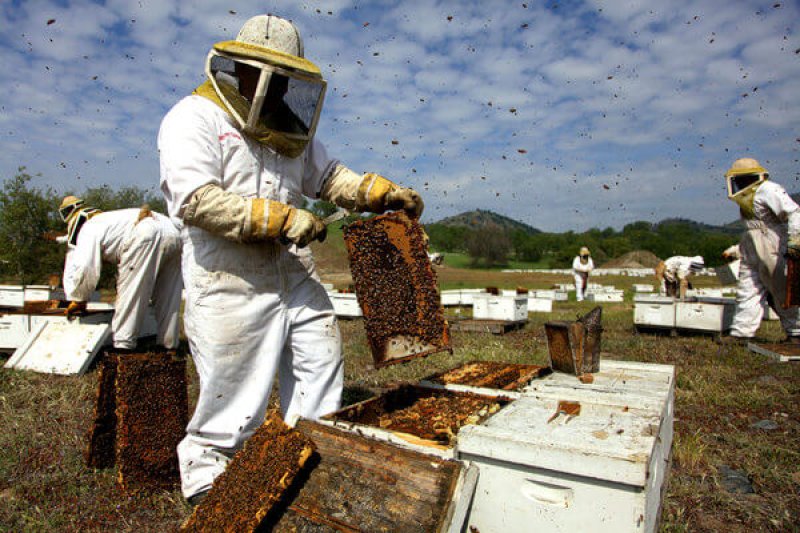A proposed replacement for a key neonicotinoid pesticide is proving unpopular with everyone — including farmers and beekeepers.
Farmers adopted neonic pesticides because they were safer and didn’t damage the environment as older pesticides did. With one of the three used in Canada being phased out, the search for replacements is on.
Mark Brock, chairman of Grain Farmers of Ontario, told the Commons agriculture committee that replacement for imidacloprid is far more expensive and less effective.
“There are no alternatives in the marketplace or in the technology pipeline that provide the same level of protection and safety,” he said.
“Last year [2016], there was an introduction of a similar product into the marketplace, but it’s not available for soybeans, nor does it cover the same array of insects that the three neonics do.”
Brock also said it’s being sold at four times the cost of the neonic seed treatment, even though it provides less protection.
…
Jim Coneybeare, president of the Ontario Beekeepers Association, [said] DuPont’s Lumivia seed treatment will likely replace as much as 75 percent of neonics on corn in Ontario this planting season. While the Pesticide Management Regulatory Agency approved it, he said its active ingredient “negatively affects the behaviour of bees.”
The GLP aggregated and excerpted this blog/article to reflect the diversity of news, opinion, and analysis. Read full, original post: Neonic replacement not popular with farmers or beekeepers
For more background on the Genetic Literacy Project, read GLP on Wikipedia































